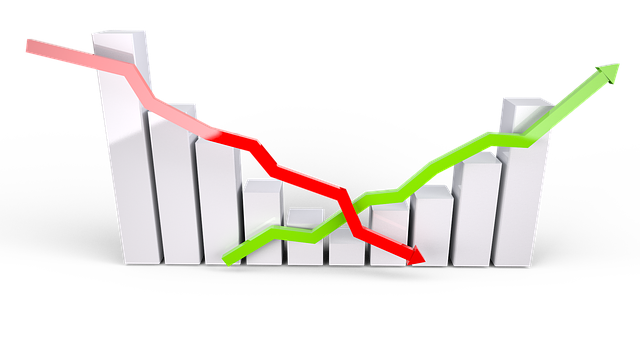Published on Wednesday, April 9, 2025
Recessions can be financially challenging, but they also test the resilience of investors. During these uncertain times, making cautious and informed investment decisions becomes critical. One of the most important rules is to steer clear of risky assets in recession. Investing in the wrong places could mean losing your savings when the economy takes a downturn.

In this article, we’ll take a closer look at what “risky assets in recession” are, why you should avoid them, and what safer alternatives you can explore.
What Are Risky Assets in Recession?
The phrase “risky assets in recession” refers to investments that carry high levels of volatility or uncertainty during economic downturns. These assets might deliver great returns during stable times, but in a recession, their value often falls dramatically. They include speculative stocks, high-yield bonds, real estate in unstable markets, and other unpredictable investments.
Recessions create an environment where markets are unpredictable and consumer spending declines. This makes risky assets a poor choice for most investors. Instead, focus on investments that prioritize stability over short-term gains. To better understand how market conditions shift during downturns, explore our article on Financial Market Trends.
Avoid Speculative Stocks: The Danger of Uncertainty
Why Are Speculative Stocks Risky Assets in Recession?
Speculative stocks often belong to startups or companies in emerging industries. They are high-risk, high-reward investments that depend on future performance. During a recession, these companies typically face reduced funding and declining revenues, making their stock prices highly volatile.
For example, during the 2008 financial crisis, many tech startups saw their funding dry up, leading to massive stock crashes. Investors lost billions in speculative industries like green energy or experimental technologies. Learn more about managing startup risks in our Startup Financing Options guide.
Alternative Approach:
- Stick to blue-chip stocks, which are shares of established companies with a history of consistent performance.
- Look for dividend-paying stocks, as they often indicate financial strength and stability.
Learn more about blue-chip stocks from trusted sources like Morningstar.
High-Yield Bonds: Tempting but Risky
The Illusion of Safety in Junk Bonds
High-yield bonds, also called junk bonds, are known for their high-interest payments. While they might appear lucrative, these bonds are issued by companies with lower credit ratings. During a recession, the risk of default rises sharply, leaving investors with significant losses.
For example, during the COVID-19 pandemic, numerous companies defaulted on their high-yield bonds as they struggled to stay afloat. Investors who relied on these bonds for income faced a harsh reality. Investors should also consider exploring The Biggest Tax Loopholes in 2025 to mitigate potential losses.
Better Alternatives:
- Government Bonds: These are among the safest investments during a recession.
- Investment-Grade Corporate Bonds: Issued by financially strong companies, these offer more stability.
Explore safe bond options at Investopedia.
Real Estate: Beware of Unstable Markets
Why Real Estate Can Be a Risky Asset in Recession

Real estate is often seen as a safe investment, but during a recession, this isn’t always true. In unstable or speculative markets, property values can drop significantly. Rental incomes may also decline, making it harder for investors to cover mortgage payments or generate profits.
For example, luxury real estate in tourist-dependent areas suffered during the 2020 recession. Properties that seemed like safe investments lost value rapidly. Want to understand real estate risks better? Check out our article on The Main Areas of Private Equity for insights.
Advice for Investors:
- Avoid speculative real estate in overheated markets.
- Focus on affordable housing in areas with stable demand and employment opportunities.
Check current real estate trends at Zillow.
Luxury Goods and Collectibles: A Poor Choice
The Pitfalls of Investing in Luxury Assets
Luxury goods and collectibles, like rare art, designer handbags, or vintage cars, are not recession-proof investments. During tough times, people tend to prioritize essentials over luxuries. This shift in priorities drives down the demand and value of such items.
For instance, auction houses reported a sharp decline in sales during the Great Recession of 2008. Investors who held luxury goods faced difficulty selling them without incurring losses.
Safer Alternatives:
- Precious metals like gold, which tend to retain their value during economic downturns.
- Build an emergency fund to ensure liquidity during uncertain times.
Cryptocurrencies: Volatile and Unpredictable
Why Crypto is a Risky Asset in Recession
Cryptocurrencies, while innovative, are extremely volatile. Their value is largely driven by speculation rather than tangible assets. In a recession, when market sentiments are negative, the prices of cryptocurrencies can swing dramatically.
For instance, Bitcoin lost nearly 50% of its value during the early stages of the COVID-19 pandemic before recovering later. Such volatility makes cryptocurrencies unsuitable for risk-averse investors during a downturn.
What to Do Instead:
- If you’re interested in blockchain technology, allocate only a small percentage of your portfolio to cryptocurrencies.
- Focus on traditional, stable investments for the bulk of your portfolio.
Learn about cryptocurrency risks at CoinDesk.
Leveraged Investments: High Stakes, High Losses
The Dangers of Leverage During a Recession
Leveraged investments involve borrowing money to invest. While this strategy can amplify profits in good times, it can also amplify losses during bad times. Recessions often lead to falling asset values, leaving leveraged investors in debt.
Imagine borrowing money to invest in the stock market, only to watch the market crash. You would not only lose your investment but also face the burden of repaying the loan.
Alternative Strategy:
- Avoid leveraging during economic downturns. Focus on building a diversified portfolio of stable investments.
Cyclical Industries: Timing is Key
Why Cyclical Industries Are Risky Assets in Recession
Cyclical industries, such as travel, luxury retail, and entertainment, are heavily influenced by economic conditions. During a recession, these industries experience reduced demand, making them risky investments.
For example, airlines and hotel chains often post losses during recessions as people cut back on travel. Investors in these sectors face significant risks.
Invest in Defensive Sectors Instead:
- Consider industries like healthcare, utilities, and consumer staples, which are less affected by recessions.
What to Invest in Instead
To safeguard your finances during a recession, focus on the following options:
- Government Bonds: Safe and reliable.
- Index Funds: Diversify your investments with low-cost options.
- Emergency Fund: Keep a cash reserve for unexpected expenses.
Explore more investment strategies at NerdWallet.
For additional insights, check trusted resources like The Motley Fool and Investopedia. Investing wisely today can help you secure a brighter financial future.
Frequently Asked Questions (FAQs):
- What is this topic about?
This section provides an in-depth explanation, outlining the key elements, benefits, and purpose of the subject in focus. For example: “This topic covers how to optimize articles for SEO, including strategies for keyword integration, internal linking, and enhancing readability.” - Why is this topic important?
Explains the value and relevance of the subject, highlighting how it impacts the user’s experience or objectives. For example: “Optimizing articles for SEO is crucial for improving visibility on search engines, increasing traffic, and enhancing user engagement.” - How can I benefit from this?
Details the practical advantages users can gain, along with examples. For instance: “SEO optimization can help drive targeted visitors to your website, boost credibility, and make your content more accessible to readers.” - What are the steps to get started?
Breaks down actionable steps, ensuring users can easily follow them. Example: “To begin optimizing your content:- Research high-performing keywords.
- Structure your article with subheadings and bullet points for readability.
- Add internal and external links to trusted sources.
- Monitor performance using SEO tools.”
- Where can I find additional resources?
Points to trusted websites, tools, or videos for further learning. Example: “Check out platforms like Moz and Ahrefs for SEO tips, or watch tutorials on YouTube for step-by-step guidance.”